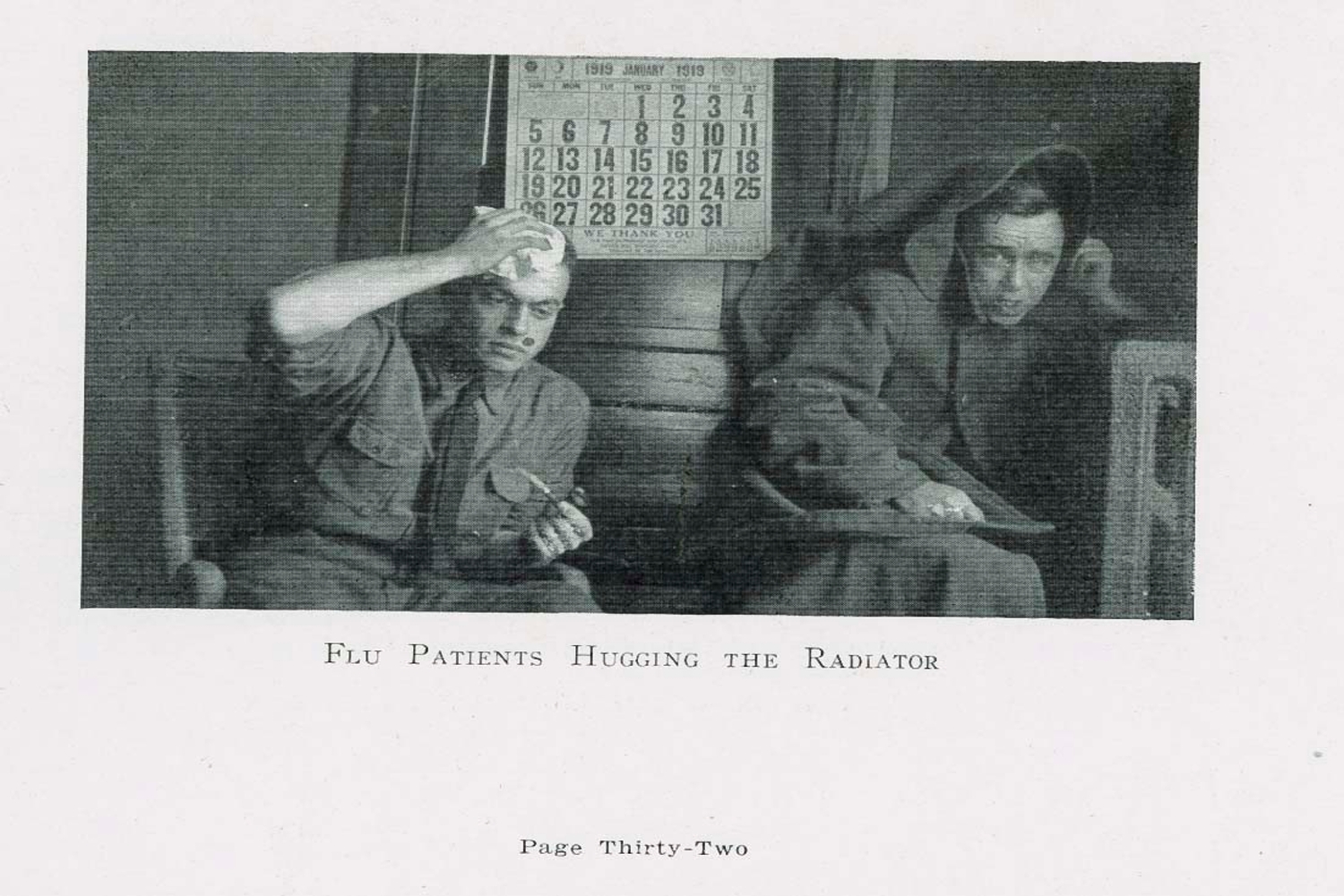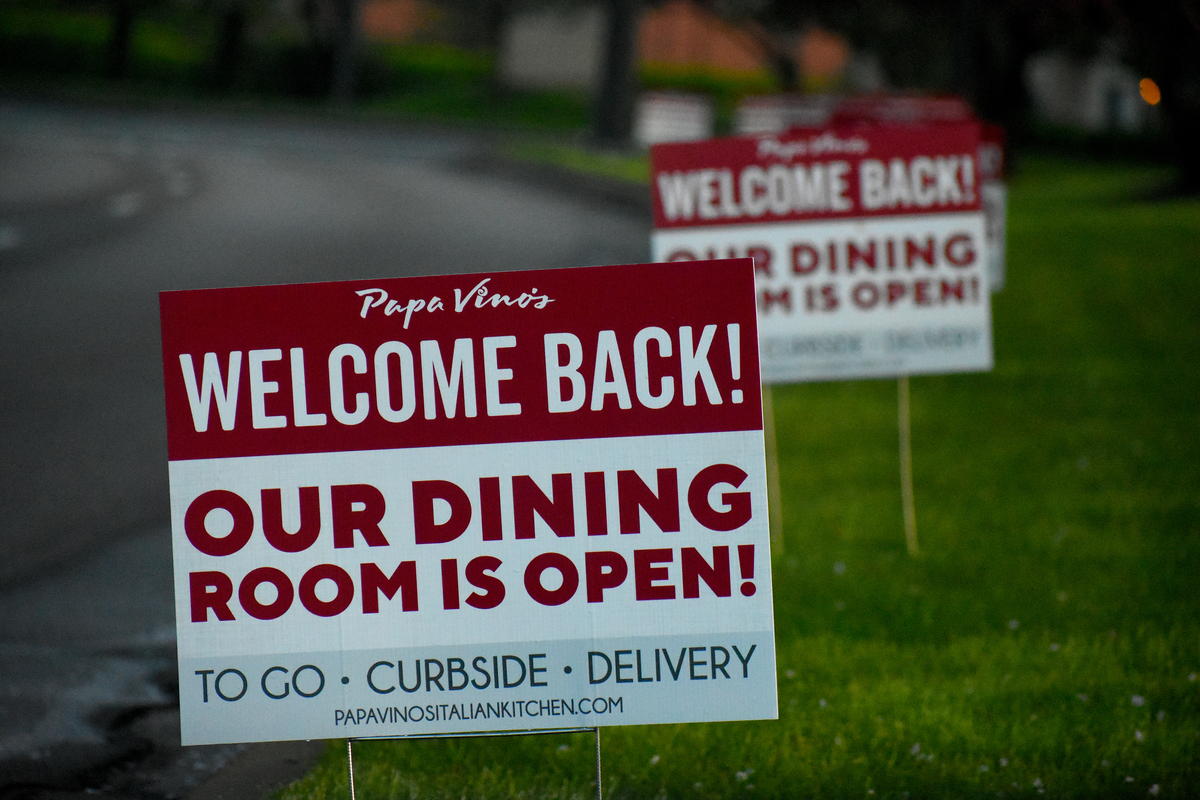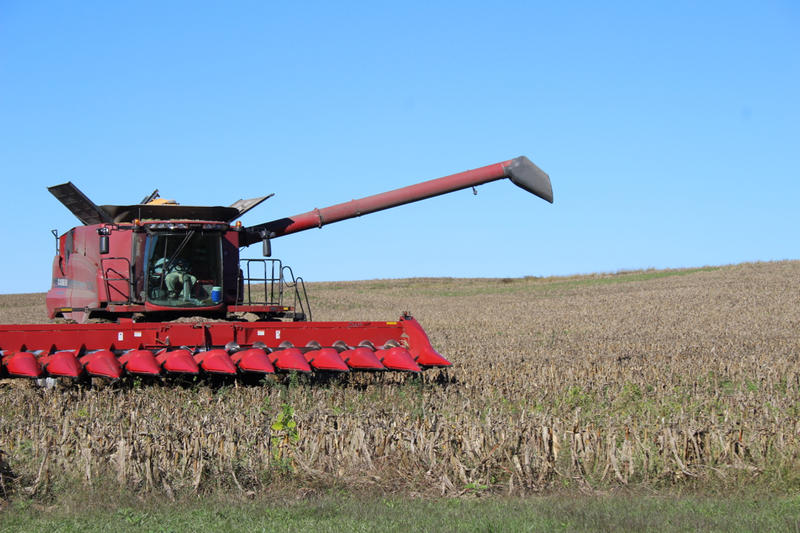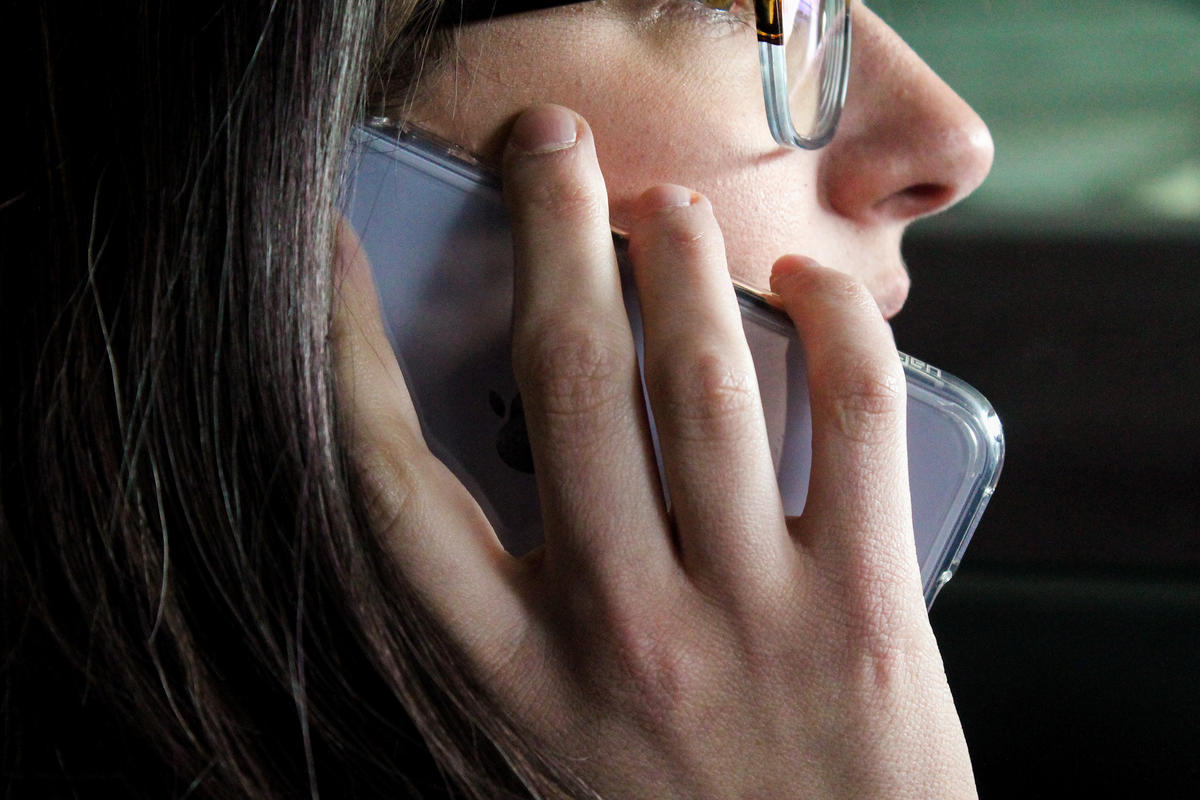
State Health Commissioner says if you're contacted by the call center, you are obligated to give them a call back. (Lauren Chapman, IPBS News)
The same day Gov. Eric Holcomb announced plans to start reopening the state’s nonessential businesses, Monroe County officials extended the local emergency declaration, prolonging the stay-at-home order in the county for two weeks.
They cited not enough testing or contact tracing as reasons it was too early to make a decision about reopening the economy.
In an April 29 briefing, State Health Commissioner Dr. Kris Box announced the state health department contracted with the company Maximus to hire 500 people to conduct contact tracing. Services through the contract will cost $43 million a year.
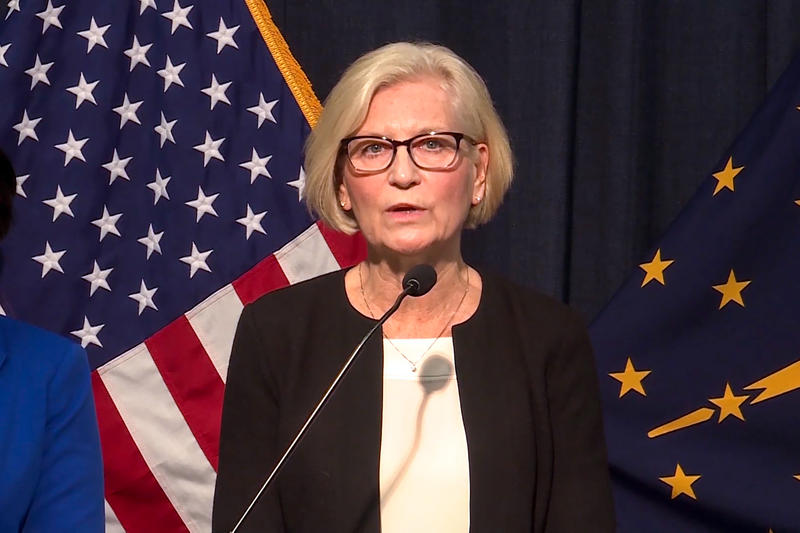
This week, the state launched its contact tracing call center, taking over the task for 21 local health departments across Indiana, including in Monroe County, with more soon to come.
Contact tracers undergo a three- to four-hour video training overseen by health department epidemiologists.
Box details what the state’s contact tracing program will involve:
“When we identify an individual who is positive for COVID-19, we need to determine who they’ve been in contact with and then individually notify each of those contacts."
People who test positive for COVID-19 will be notified by a tracer and interviewed over the phone about people they have recently been in contact with.
These interviews can take between one and two hours, according to Box.
“We will also ask questions about who the individual has been in contact with, whether that was at work, at home, or in a social setting, and get the addresses and phone numbers to reach out to these individuals,” she says.
Box says in addition to tracing the virus, these calls are meant to educate people who have tested positive for COVID-19. They’ll be instructed to isolate for seven to 10 days and about when and how they should seek further health care.
She adds that tracers will contact about 10 people for each person who tests positive for COVID-19, warning them that they’ve been in close contact with a COVID-19 positive person, and instructing them to quarantine for 14 days.
People contacted by the call center will also get daily emails and texts monitoring their condition.
“If they get symptoms then we must get them tested to follow them up as a positive case," she says. "If they do not develop symptoms after 14 days, they can come out of quarantine.”
Initial outreach for people who have been exposed to a COVID-19 positive person will be a text message or email instructing the person to call the state’s contact tracing call center.
This method does not track people's data or locations, Box says. But if you are contacted by the state's contact tracers, an response is expected. Interviews conducted by contact tracers are kept private, and information is only shared with local health departments.
READ MORE: State Emphasizes Confidentiality In Contact Tracing Process
The goal of contact tracing is to identify and isolate carriers of the virus as quickly as possible, Box says.
"We’re going away from those things that we do to a broader population to now going to those policies directed at individuals who are contacts of, or positive cases associated with COVID-19."
Before the state took over contact tracing for COVID-19, the work fell on county health departments. This is not new. Local health departments are resonsible for contact tracing for other dieases like tuberculosis, and STIs.
By centralizing contact tracing, the state hopes local health departments will be able to focus more on meeting individuals’ needs, providing normal services and getting ahold of people who are too difficult for the call center to track down.
“It will also allow our local health department to assist with education, further testing, and controlling in our high-risk congregate settings,” Box says.
High-risk settings could be places like manufacturing facilities.
Local health deparments will use the information gathered by the state to identify potential outbreaks and prevent further spread of infection.
In Monroe County, three part-time nurses were working on contact tracing before the state stepped in this week.
Amy Meek is the program manager for the Monroe County Public Health Clinic. She says as the state is able to keep more information on who has COVID-19 and who they’ve been in contact with, she and her staff will work to control hotspots that arise.
“When the state is doing contact tracing, they find out, ‘Oh this person went to this large gathering,'" she says. "They will alert us of something that could be a hotspot that we need to know about.”
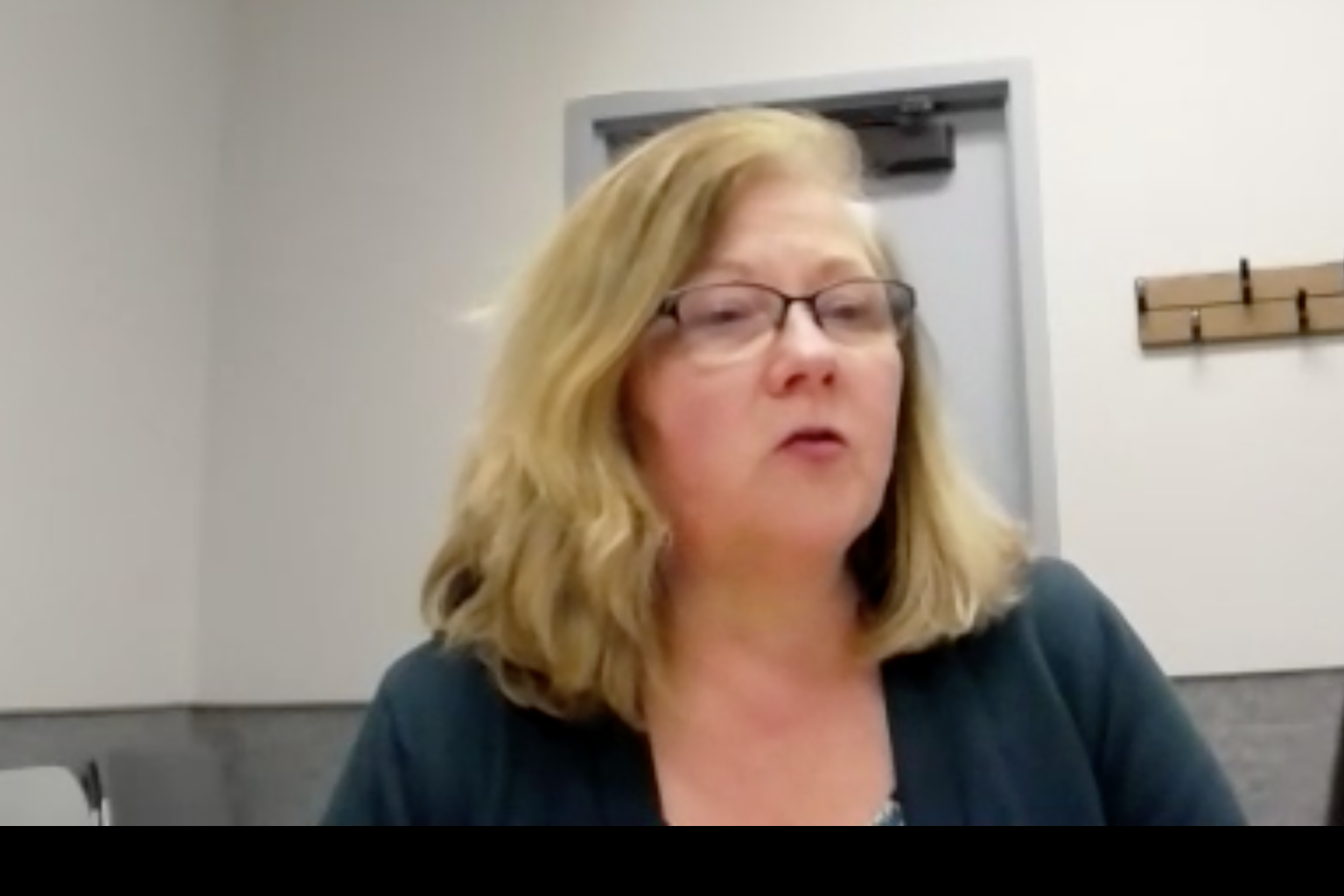
Monroe County Health Commissioner Penny Caudill says there are a lot of conditions to Monroe County being ready to reopen, some measurable by data, and some more difficult to track. She says contact tracing is a step in the right direction and will help contain the virus.
"We just really feel we need to be very methodical and move slowly and mindfully forward, so we reduce chances of having to pull back,” Caudill says.
She says in addition to data, local policy makers are listening to hospital leaders, business owners, and making observations about community practices with social distancing.
For the latest news and resources about COVID-19, bookmark our Coronavirus In Indiana page here.







